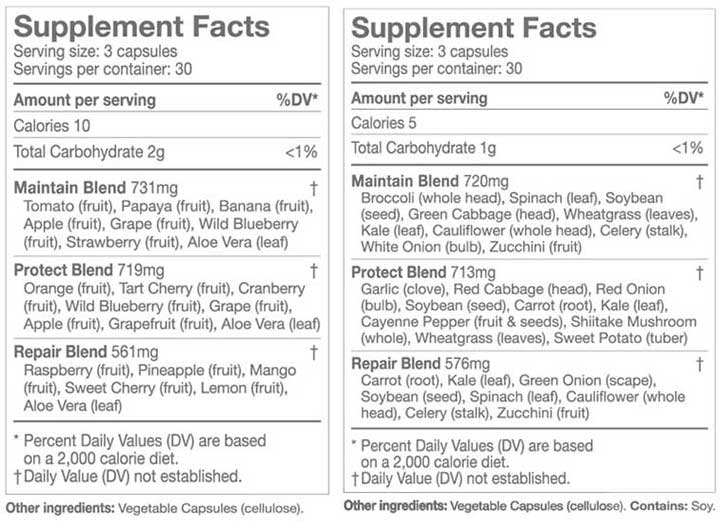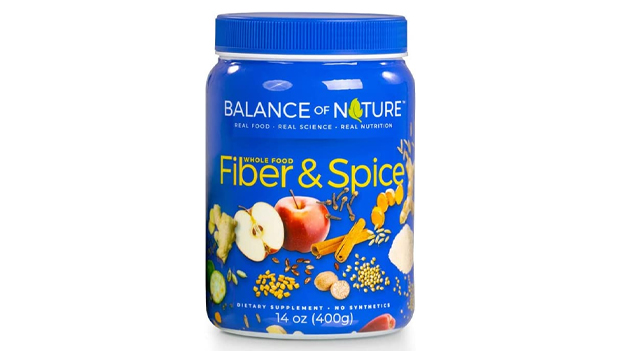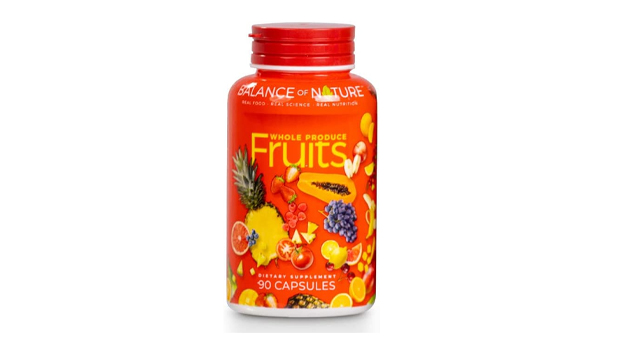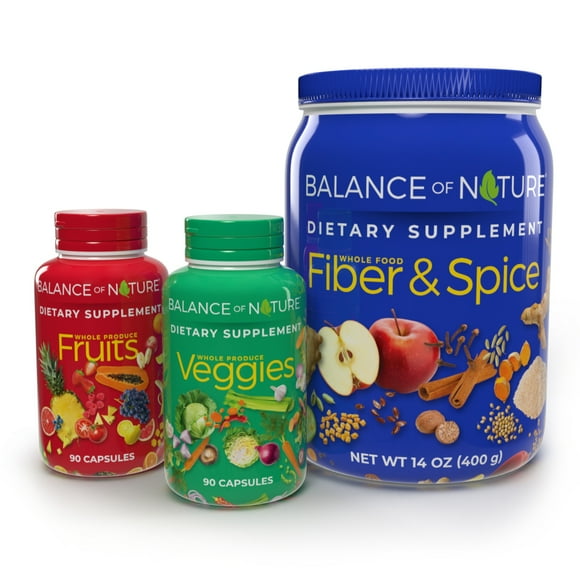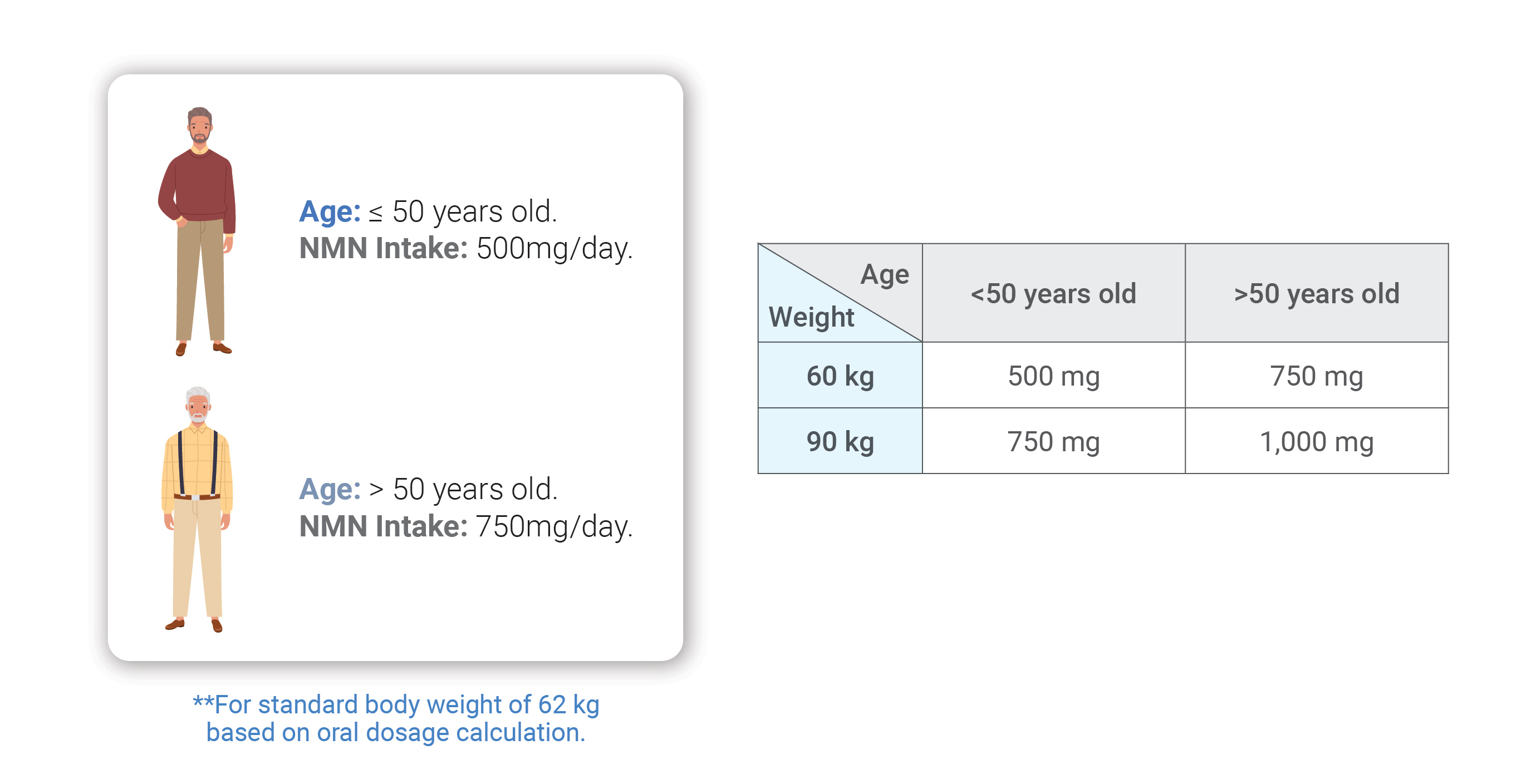Balance Of Nature Dosage Per Day

The popular dietary supplement Balance of Nature, marketed as a convenient way to consume fruits and vegetables, has faced scrutiny regarding its recommended dosage. Consumers and health professionals alike are questioning whether the suggested serving size truly delivers the promised benefits. Understanding the science behind the dosage is crucial for individuals seeking to make informed decisions about their health.
At the heart of the debate lies the question: Is the prescribed six capsules per day – three each of Fruits and Veggies – sufficient to provide a meaningful impact on overall health and well-being? This article delves into the science, scrutinizes expert opinions, and examines the available evidence to provide a comprehensive understanding of the Balance of Nature dosage.
Understanding the Recommended Dosage
According to Balance of Nature's official website, the recommended dosage is three Fruit capsules and three Veggie capsules daily. This translates to consuming a blend of 31 different fruits and vegetables in a concentrated form. The company claims that this dosage helps bridge nutritional gaps in the average diet.
However, it is important to understand that these capsules are intended to supplement, not replace, whole fruits and vegetables. Balance of Nature emphasizes a holistic approach to health, recommending a balanced diet alongside their products.
The Science Behind the Ingredients
Each Balance of Nature capsule contains a proprietary blend of powdered fruits and vegetables. These ingredients are carefully selected and processed to retain their nutritional value. The company uses a flash-drying process to remove water while preserving the vitamins, minerals, and phytonutrients.
Key ingredients in the Fruit blend include apple, banana, blueberry, cherry, cranberry, grape, orange, papaya, pineapple, raspberry, and strawberry. The Veggie blend contains broccoli, cabbage, carrot, cauliflower, cayenne pepper, celery stalk, garlic, kale, onion, shiitake mushroom, spinach, sweet potato, wheatgrass, and zucchini.
Expert Opinions on Dosage
Registered dietitians and nutritionists have expressed varying opinions on the efficacy of the Balance of Nature dosage. Some experts acknowledge that the product could provide a concentrated source of nutrients for individuals with limited access to fresh produce.
Others are skeptical, arguing that the relatively small amount of each ingredient may not deliver significant health benefits. They emphasize the importance of consuming whole fruits and vegetables, which provide fiber and other essential nutrients not fully replicated in the capsules.
"While Balance of Nature may offer some nutritional value, it's crucial to remember that whole foods are always the preferred source of vitamins and minerals," says Dr. Emily Carter, a registered dietitian specializing in preventative nutrition.
Analyzing the Nutritional Content
One of the primary concerns regarding the Balance of Nature dosage is the quantity of each fruit and vegetable included. While the company provides a list of ingredients, the exact amounts of each component within the capsules are not publicly disclosed.
This lack of transparency makes it difficult to accurately assess the nutritional value provided by the recommended dosage. Consumers are left to rely on the company's claims regarding the potency and bioavailability of the ingredients.
Bioavailability Considerations
Bioavailability refers to the extent to which a nutrient is absorbed and used by the body. Even if a supplement contains a wide range of vitamins and minerals, they may not be effectively absorbed depending on various factors.
The processing methods used by Balance of Nature are designed to preserve nutrient bioavailability. However, individual absorption rates can vary based on factors such as age, gut health, and overall dietary habits.
Potential Benefits and Limitations
Proponents of Balance of Nature claim that the recommended dosage can improve energy levels, support immune function, and promote overall well-being. Some consumers report feeling more energetic and experiencing better digestion after incorporating the supplement into their daily routine.
However, these anecdotal experiences should be interpreted with caution. There is limited scientific evidence to support all of the claims made by the company.
Controversies and Criticisms
Balance of Nature has faced controversies regarding its marketing practices and health claims. In the past, the company has been subject to regulatory scrutiny for unsubstantiated claims about its products' ability to treat or prevent diseases.
These controversies highlight the importance of conducting thorough research and consulting with healthcare professionals before using any dietary supplement. It is essential to separate marketing hype from scientific evidence.
The Role of the FDA
The Food and Drug Administration (FDA) regulates dietary supplements, but the level of oversight is less stringent compared to pharmaceutical drugs. Balance of Nature is classified as a dietary supplement, meaning it does not require FDA approval before being marketed to consumers.
The FDA's role is to ensure that supplements are safe and properly labeled. However, the agency does not evaluate the efficacy of supplements unless there is a safety concern or a claim is made that the product can treat or cure a disease.
Future Directions and Research
Further research is needed to fully understand the potential benefits and limitations of the Balance of Nature dosage. Well-designed clinical trials are essential to evaluate the supplement's impact on various health outcomes.
Independent researchers could investigate the bioavailability of the nutrients in Balance of Nature and compare its efficacy to consuming whole fruits and vegetables. This would provide consumers with more evidence-based information to make informed decisions.
Ultimately, the optimal dosage of any dietary supplement depends on individual needs and health goals. Consulting with a registered dietitian or healthcare provider is crucial to determine the appropriate approach for each person.
While Balance of Nature may offer a convenient way to supplement fruit and vegetable intake, it is not a substitute for a healthy, balanced diet. A diet rich in whole foods, combined with regular exercise and stress management, remains the foundation of optimal health.


